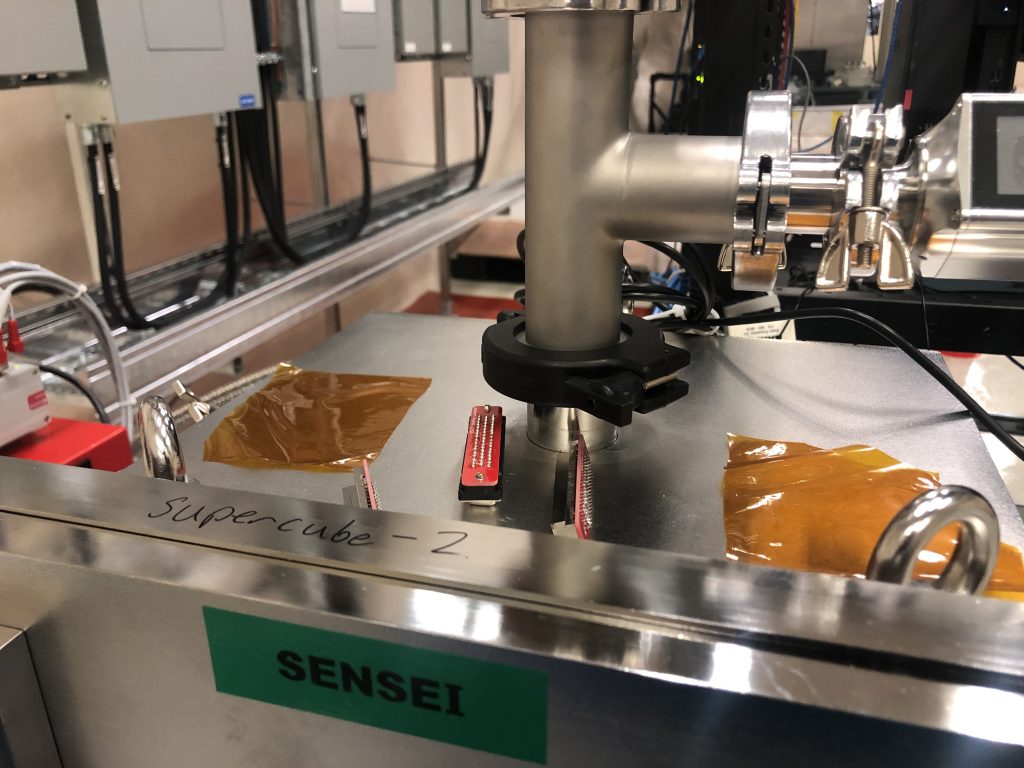SENSEI awarded New Horizons in Physics prize

The 2021 Breakthrough Prize winners were announced earlier this month, and an experiment hosted at SNOLAB is once again among the winners. One of the New Horizons in Physics prizes was awarded to a group of scientists, “for advances in the detection of sub-GeV dark matter especially in regards to the SENSEI experiment.” SENSEI, the Sub-Electron-Noise Skipper-CCD Experimental Instrument, is a new dark matter detector that is able to detect interactions from very low-mass dark matter particles. Dark matter, so far observed only indirectly from its influence on other objects in the universe, accounts for about 80% of the matter in the universe. Detecting it directly is one of the main goals of particle physics today.
The SENSEI collaboration is comprised of experimental and theoretical physicists working together on the cutting edge of dark matter research. In using CCDs to detect dark matter, the experiment is extremely sensitive to tiny energy transfers that would signal a particle interaction. CCDs are charge-coupled devices, essentially electronic circuits made of multiple linked capacitors, and were first used in imaging – digital cameras have CCDs in them. Much larger and more precise CCDs have been developed for telescopes and are being used to detect interactions in particle physics. The DAMIC experiment at SNOLAB also used CCDs to detect signals as small as a few electrons, and potentially light dark matter particles. The CCDs used in SENSEI are skipper CCDs. They are made up of millions of pixels, and the technology now allows for every electron within a pixel to be counted, leading to incredibly accurate measurements with no background noise.
The Breakthrough Prize, often called the ‘Oscars of Science’, is awarded each year in the fields of mathematics, fundamental physics, and life sciences to recognize outstanding research that advances knowledge. The New Horizons Prizes are given to recognize early career researchers who have already had a substantial impact on their field. This year, three New Horizons Prizes in Physics were awarded, one of which was shared between four SENSEI researchers. This is not the first time an experiment operating at SNOLAB has received this honour: the 2016 Breakthrough Prize was awarded to five experiments studying neutrino oscillations, including SNO.
SNOLAB Executive Director Nigel Smith says, “What fantastic news! It’s great to see the innovative technology and dedication of the SENSEI team recognized in this way. SNOLAB is looking forward to the deployment of the SENSEI detector at SNOLAB later this year, and continuing to work with the team to search for dark matter. Well done!” The SENSEI collaboration already has some materials, like lead shielding, on site at SNOLAB and a team of SNOLAB scientists is working with the SENSEI team to assist with receiving, construction of the detector underground, and eventually commissioning the experiment. The goal is for SENSEI to begin taking data early next year.